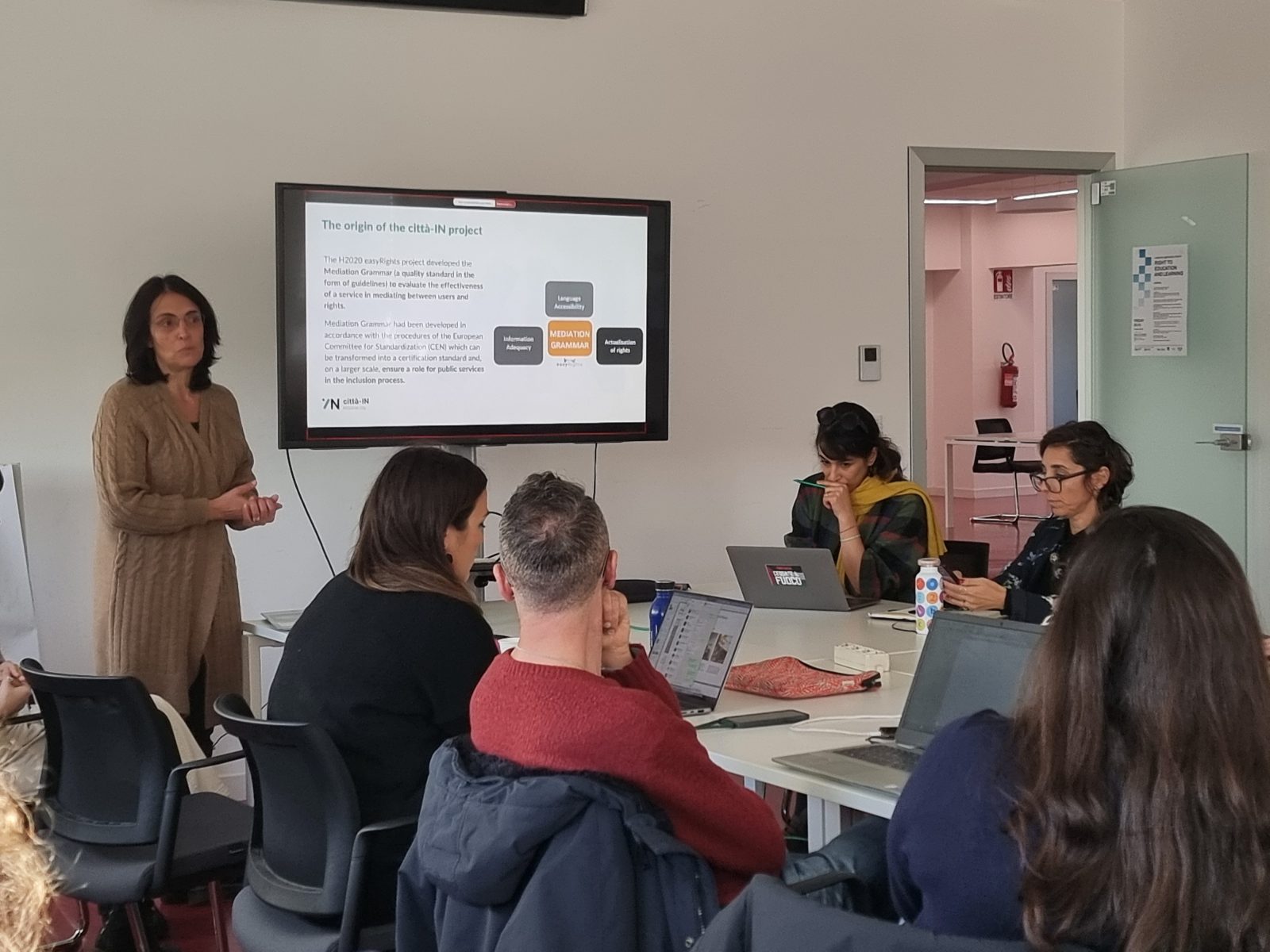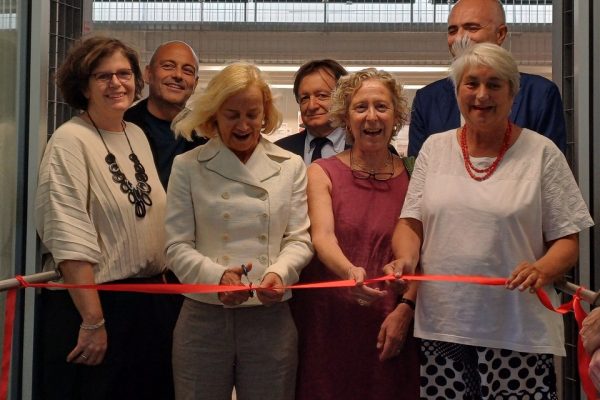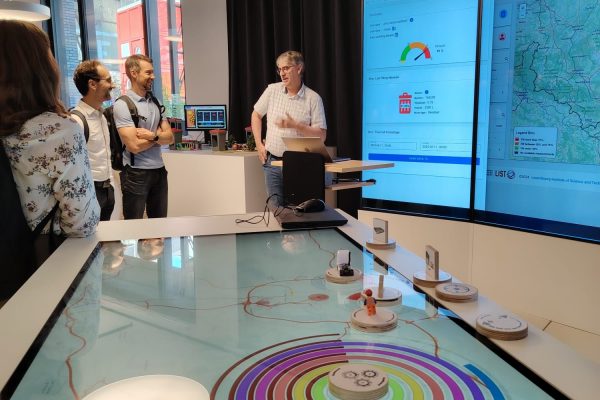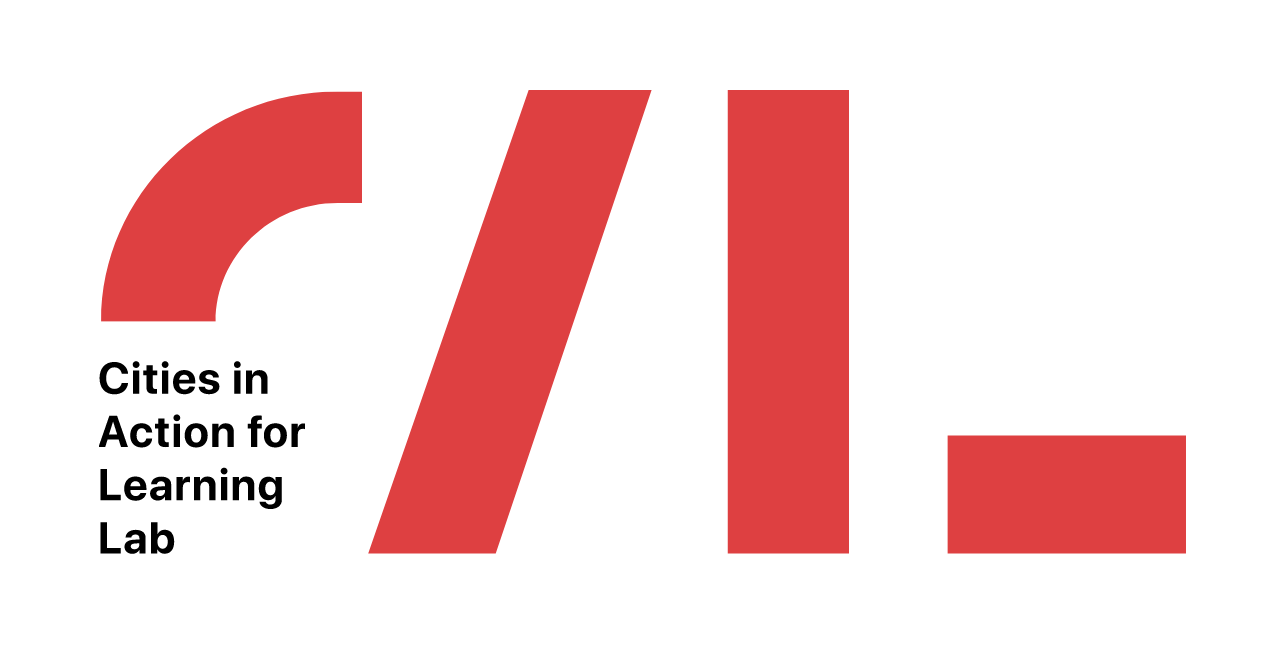
Right to Education and Learning: Insights from the Seminar
Envisioning Translocality
Enabling Institutions
Enforcing Practices
The “Right to Education and Learning” seminar brought together researchers and practitioners to discuss social inclusion and access to fundamental services, particularly in education. Hosted by the città-IN team, the event provided a moment to share project findings and exchange knowledge with two other initiatives addressing social equity.
Presentations and key insights
The seminar opened with an introduction by Maryam Karimi, followed by a presentation by Grazia Concilio, who outlined the città-IN project’s origins (easyRights EU project) and its objectives. Giada Casarin presented the qualitative research findings, emphasizing the challenges faced by migrant families—especially mothers—due to digital, language, and cultural barriers. Laura Galluzzo from the Design department then highlighted key achievements, including school service mapping, co-design sessions with the local community, and the collaboration with the association “Mamme a Scuola“, which resulted in the co-produced manual Parliamo di Scuola.
Carlotta Caciagli and Stefania Sabatinelli presented findings from the MUSA project stressing the role of physical spaces in mitigating socio-spatial and digital inequalities in welfare access. Teresa Sordé-Martì (Autonomous University of Barcelona) enriched the discussion with insights from the Refuge-ed project and the Brokering Knowledge Platform. She highlighted persistent educational disparities between migrant and non-migrant students across Europe and introduced evidence-based strategies to support migrant and refugee children in education and mental health.
Panel discussion and key takeaways
A multidisciplinary panel featuring Beatrice Villari (service designer), Paola Briata (urban planner), and Stefano Pontiggia (anthropologist) reflected on critical issues such as research positionality, ethical considerations, and strategies to bridge gaps between institutions and communities. This seminar reinforced the understanding that integration is a reciprocal process, necessitating both structural provisions from host societies and proactive engagement from migrants. A synergistic approach that foregrounds collaborative problem-solving, peer learning, and co-creation is fundamental to elevating educational equity and fostering more inclusive urban environments.
The discussion culminated in ten major takeaways:
- Terminology and representation: How can researchers employ non-discriminatory and non-labeling language when referencing marginalized and racialized communities?
- Ethical research practices: What strategies can be employed to mitigate the risks of over-researching specific communities, ensuring they feel acknowledged rather than exploited or overlooked?
- Impact and transformative change: To what extent do research initiatives yield substantive cultural, social, and political change, and how can their impact be more effectively harnessed?
- Digital-physical nexus: Examining the intricate interplay between digital and physical spaces in fostering social inclusion, particularly in the realm of education and welfare services.
- Building trust and sustaining engagement: The significance of cultivating trust-based, enduring relationships as a cornerstone of effective integration strategies.
- Reflexivity and research ethics: A critical assessment of researcher’s self-interest and the necessity of avoiding the instrumentalization of communities as mere subjects of inquiry through a decolonial approach.
- Scalability and systematic impact: Exploring methodologies to measure and implement tools that transcend local contexts and generate broader systemic change across multiple scales.
- Beyond migration paradigms: Avoiding the conceptual entrapment of migration research within rigid community-based narratives, thereby embracing more dynamic and holistic analytical frameworks.
- From necessity to aspiration: Transitioning the discourse from a deficit-based paradigm centered on needs and demands to one that envisions desire, imagination, and aspirations as fundamental components of integration processes.
- Commitment to reciprocity: Recognizing that action-oriented research necessitates tangible reciprocity, particularly when engaging with vulnerable and marginalized communities, ensuring that academic inquiry translates into meaningful contributions.



